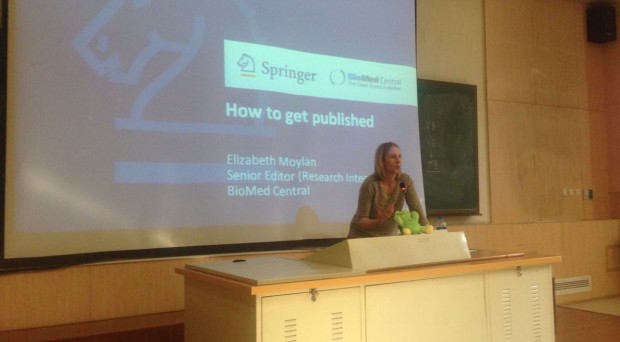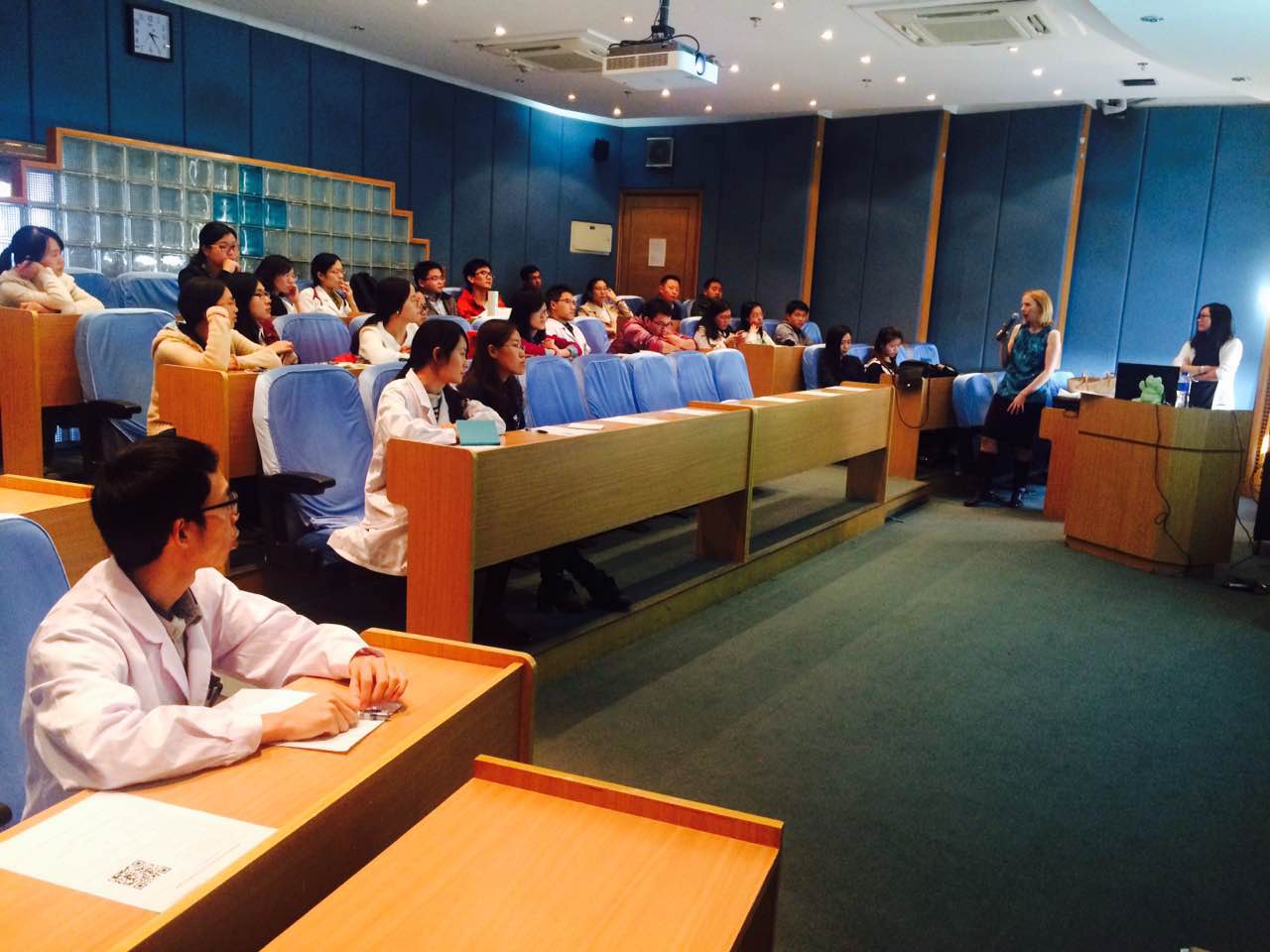
An Open Research Day
Open access is no longer an experiment, it’s a fact.
Derk Haank
Chief Executive Officer, Springer Nature
In Beijing, BioMed Central kick-started international open access week with an Open Research day on the theme of scientific publishing, peer-review and innovation. Kun Yu summarized the main themes from the day here.
The open access movement has made tremendous strides since its beginning 15 years ago and there is increasing acceptance of open access in China following the announcement of the first open access mandate.
How to publish your research
For the rest of the week BioMed Central colleagues visited various hospitals to talk to young medical students (in Beijing, Shenyang and Wuhan) about writing up research for publication.
We stressed the need for authors to check the quality of the open access journals they submit to – ‘think, check, submit’ – and ensure the quality of their own research through adherence to reporting guidelines.
We discussed what Editors look for in terms of a manuscript’s match to the journal’s scope and threshold, an informative cover letter and abstract, and adherence to editorial policies.
Common problems that can crop up during peer review were discussed such as how to minimize authorship disputes by agreeing authorship contributions from the start, what to consider when declaring competing interests and how best to respond to reviewers’ comments.

Students were eager to learn about how they could improve their own manuscripts through becoming more involved in the peer review process.
Early career researchers are usually ‘off the radar’ of Editors because they lack the publication record to be visible as credible reviewers. However, they often conduct the most thorough reviews.
Principal Investigators can mentor their students by involving them in the peer review process of papers they review as long as the Editor is aware, confidentiality is maintained and the student is recognized for their part in the process.
The Committee on Publication Ethics have produced ethical guidelines for peer reviewers here and Jigisha Patel, Associate Editorial Director, has written a helpful ‘guide to peer review’ for beginners.
Originality of research
And finally, as emphasized by Min Li on Open Research Day, and by Mengfeng Li in a recent blog on training young researchers in China, ‘all researchers have to choose the best question to study’. And nothing brings home the importance of this more so than the decision to award Youyou Tu the Nobel Prize for her work on developing artemisinin as a treatment for malaria.
As noted by Lan Xue in a comment for Nature News ‘Tu has never worked outside China, and has not racked up major publications… yet she gets the Nobel because of the originality of her work. It couldn’t have been a better choice in terms of the lessons it offers Chinese scientists’.
Thank you to all who contributed to our discussions and Diane Wang’s team in Beijing for hosting a thoroughly enjoyable week.
Comments